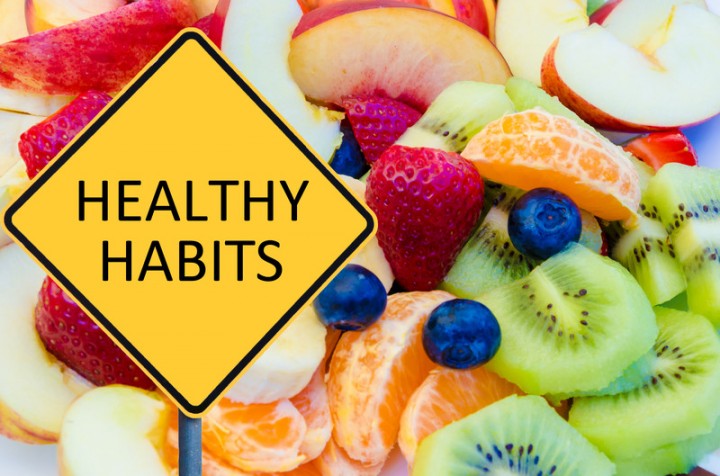
Introduction
Healthy eating habits are essential for maintaining overall health and well-being. The food choices we make have a direct impact on our energy levels, mood, weight, and long-term health outcomes. By paying attention to what we eat and making conscious decisions about our diet, we can significantly improve our quality of life. In this article, we will delve into the basics of healthy eating, including the importance of a balanced diet, the role of macronutrients and micronutrients, hydration, creating healthy eating habits, and overcoming common obstacles to healthy eating.
The Basics of Healthy Eating
Healthy eating involves consuming a variety of foods that provide the necessary nutrients for optimal health. A balanced diet consists of a mix of macronutrients (carbohydrates, proteins, and fats) and micronutrients (vitamins and minerals) in appropriate quantities. These nutrients play crucial roles in maintaining bodily functions, supporting growth and repair, and preventing chronic diseases.
Understanding Macronutrients
Carbohydrates
Carbohydrates are the body's primary source of energy. They can be found in foods like fruits, vegetables, grains, and legumes. There are two main types of carbohydrates: simple carbohydrates, found in sugary snacks and processed foods, and complex carbohydrates, found in whole grains, fruits, and vegetables. It is essential to prioritize complex carbohydrates over simple ones for sustained energy levels and overall health.

Proteins
Proteins are essential for building and repairing tissues in the body. They are made up of amino acids, which are the building blocks of proteins. Good sources of protein include lean meats, poultry, fish, eggs, dairy products, legumes, and nuts. Incorporating a variety of protein sources into your diet can help ensure that you are getting all the essential amino acids your body needs.
Fats
Despite their bad reputation, fats are an essential part of a healthy diet. They play a role in hormone production, cell structure, and the absorption of fat-soluble vitamins. There are different types of fats, including saturated fats (found in animal products), unsaturated fats (found in nuts, seeds, and avocados), and trans fats (found in processed foods). It is important to focus on consuming healthy unsaturated fats while limiting saturated and trans fats in your diet.

Micronutrients and Their Importance
Vitamins and minerals are micronutrients that are essential for various bodily functions. They help support the immune system, promote healthy skin, aid in metabolism, and prevent deficiencies that can lead to diseases. Consuming a diverse range of fruits, vegetables, whole grains, and lean proteins can help ensure that you are getting an adequate amount of vitamins and minerals in your diet.
The Importance of Hydration
Staying hydrated is crucial for maintaining optimal health. Water plays a vital role in regulating body temperature, aiding digestion, transporting nutrients, and flushing out waste products. It is recommended to drink at least eight glasses of water a day and more if you are engaging in physical activity or living in a hot climate.
Creating Healthy Eating Habits
Meal planning and preparation can significantly impact your dietary choices. By planning your meals in advance and preparing healthy snacks, you can avoid impulsive eating decisions and ensure that you are consuming nutritious foods. Additionally, incorporating more fruits and vegetables into your diet can provide a wide array of vitamins, minerals, and antioxidants that are beneficial for overall health.

Mindful eating involves paying attention to your food choices, eating slowly, and savoring each bite. It allows you to listen to your body's hunger and fullness cues, leading to better portion control and improved digestion. Eating without distractions, such as watching TV or using electronic devices, can help you focus on your food and prevent overeating.
Overcoming Common Obstacles to Healthy Eating
There are several common barriers to maintaining a healthy diet, such as busy schedules, social gatherings, emotional eating, and food cravings. Strategies for overcoming these obstacles include meal prepping, setting realistic goals, seeking support from friends and family, and practicing mindful eating. It is essential to remember that achieving a healthy diet is a journey that requires patience, perseverance, and flexibility.
Conclusion
Healthy eating habits are the foundation of a vibrant and fulfilling life. By understanding the basics of nutrition, incorporating nutrient-rich foods into your diet, staying hydrated, and creating healthy eating habits, you can improve your overall health and well-being. Small changes in your dietary choices can have a significant impact on your energy levels, mood, weight management, and disease prevention. Remember to prioritize whole, nutrient-dense foods, practice moderation, and enjoy the process of nourishing your body with the fuel it needs to thrive.
Additional Resources
For further information on healthy eating habits, check out the following resources:
- National Institute of Health (NIH) website
- Academy of Nutrition and Dietetics website
- "Eat, Drink, and Be Healthy" by Dr. Walter Willett
Remember, your health is your most valuable asset, so invest in it wisely by making informed and conscious choices about your diet. Your body will thank you for it in the long run. Stay healthy, stay vibrant, and stay nourished!
FAQs
Q: What is a balanced diet and why is it important?
A: A balanced diet includes a variety of foods that provide essential nutrients for optimal health. It is important because it supports bodily functions, helps with growth and repair, and reduces the risk of chronic diseases.
Q: What are macronutrients and why are they important in a healthy diet?
A: Macronutrients are carbohydrates, proteins, and fats that provide energy and support bodily functions. They are essential for overall health, growth, and repair of tissues.
Q: Why are carbohydrates important in a healthy diet?
A: Carbohydrates are the body's primary source of energy. Opting for complex carbohydrates from whole grains and fruits is crucial for sustained energy levels and overall health.
Q: What role do proteins play in the body?
A: Proteins are essential for building and repairing tissues in the body. They are made up of amino acids, the building blocks of proteins.
Q: Why are fats necessary in a healthy diet, and what are the different types of fats?
A: Fats are essential for hormone production, cell structure, and vitamin absorption. Healthy unsaturated fats should be prioritized over saturated and trans fats found in processed foods.
Q: Why are vitamins and minerals important in a healthy diet?
A: Vitamins and minerals are micronutrients necessary for various bodily functions, supporting the immune system, metabolism, and overall health.
Q: How important is hydration in maintaining optimal health?
A: Staying hydrated is crucial for regulating body temperature, aiding digestion, nutrient transportation, and waste elimination.
Q: How can one create healthy eating habits?
A: Meal planning, preparation, incorporating fruits and vegetables, mindful eating, and listening to hunger cues are key steps in developing healthy eating habits.
Q: What are common obstacles to healthy eating, and how can they be overcome?
A: Busy schedules, social gatherings, emotional eating, and food cravings are common barriers. Strategies like meal prepping, setting realistic goals, seeking support, and practicing mindful eating can help overcome these obstacles.


0 Comments